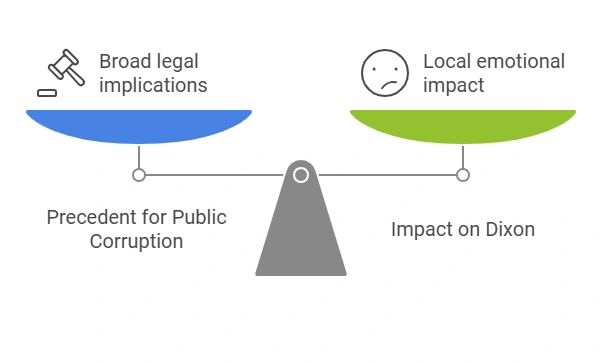
Washington, D.C.— In a controversial decision, President Joe Biden has commuted the sentence of Rita Crundwell, the former comptroller of Dixon, Illinois, convicted of embezzling over $53 million from city funds. Crundwell, once the nation’s most infamous municipal embezzler, had served nearly 11 years of her 19-year sentence before receiving clemency.
The White House stated that the commutation aligns with President Biden’s broader initiative to address issues of fairness and rehabilitation within the criminal justice system.
Background: The Crundwell Case
1. Largest Municipal Embezzlement Case in U.S. History
- In 2012, Crundwell was arrested and charged with embezzling public funds over two decades, using the money to finance her lavish lifestyle, including a nationally recognized horse-breeding operation.
- Her actions left Dixon, a city of 16,000, on the brink of financial collapse, delaying critical infrastructure projects and public services.
2. Sentence and Incarceration
- Crundwell pleaded guilty in 2013 and was sentenced to 19 years and 7 months in federal prison, with restitution obligations exceeding $50 million.
Why Did Biden Grant Clemency?
1. Focus on Rehabilitation
- White House Statement: “Ms. Crundwell’s efforts to reform herself and contribute positively during her incarceration reflect the principles of redemption and second chances.”
2. Criminal Justice Reform Agenda
The commutation is part of Biden’s broader clemency initiative, which focuses on nonviolent offenders, those with excessive sentences, and individuals demonstrating rehabilitation.
Reactions to the Commutation
Supporters See Redemption
- Advocates for Clemency: Argue that Crundwell has paid a significant price for her crimes and has shown genuine remorse.
- Clemency Advocate: “This decision is a testament to the idea that people can change and deserve a second chance.”
Critics Condemn the Decision
- Dixon Officials: Local leaders and residents expressed outrage, calling the commutation a betrayal of public trust.
- Dixon Mayor Liandro Arellano Jr.: “Rita Crundwell’s crimes devastated our city. This decision undermines accountability for public corruption.”
- Victims’ Families: Highlight the lingering impact of Crundwell’s actions on Dixon’s infrastructure and economy.
Political Opposition
- Critics accuse Biden of sending the wrong message about public corruption, particularly as the country grapples with broader debates on accountability.
Public Opinion: What’s True and Untrue?
- True:
- Crundwell’s embezzlement remains the largest municipal fraud case in U.S. history.
- She has reportedly shown good behavior and participated in rehabilitation programs during her incarceration.
- Untrue:
- Claims that her commutation clears her criminal record are false; she is still a convicted felon and must meet restitution obligations.
- Assertions that the decision reflects leniency toward corruption overlook the broader context of Biden’s clemency policy.
Implications of the Decision

1. Precedent for Public Corruption Cases
The decision raises questions about how clemency policies address white-collar crimes and the balance between rehabilitation and deterrence.
2. Impact on Dixon
Crundwell’s release may reignite public anger in Dixon, where many residents still feel the consequences of her actions.
3. Broader Criminal Justice Debate
The commutation highlights ongoing tensions in U.S. criminal justice policy, particularly regarding clemency and the treatment of white-collar offenders.
What’s Next?
1. Crundwell’s Restitution Obligations
While her sentence has been commuted, Crundwell is still required to repay millions in restitution to Dixon.
2. Legal and Public Reactions
The commutation is likely to fuel political and legal debates, with critics questioning the criteria for clemency decisions.
3. Biden’s Clemency Agenda
Conclusion: A Controversial Act of Clemency
President Biden’s decision to commute Rita Crundwell’s sentence underscores the complexities of balancing justice and redemption. While her supporters argue for second chances, the outrage in Dixon reflects the deep scars left by her crimes.
As Veritas World News observes, “Clemency decisions often walk a fine line between compassion and accountability, and this case exemplifies that delicate balance.”
